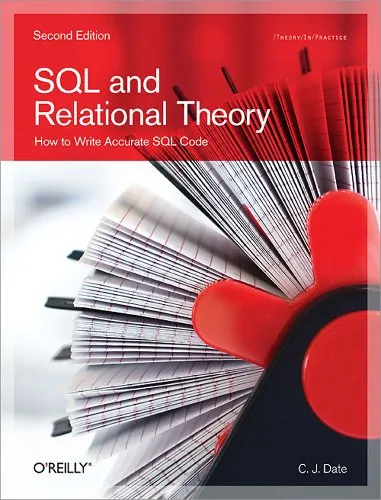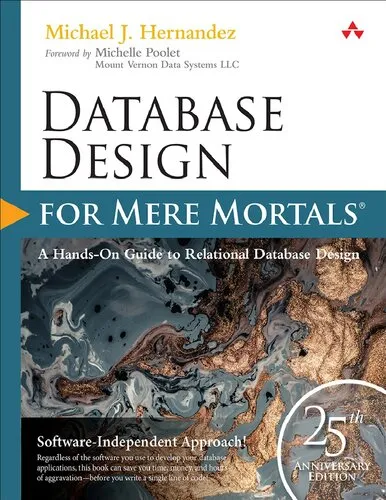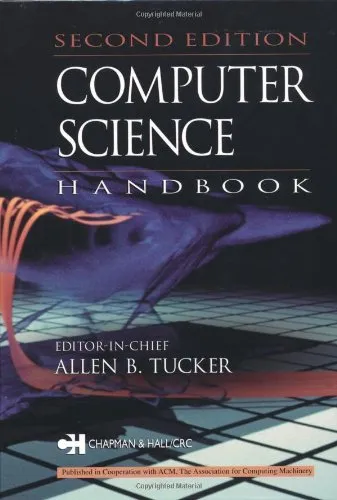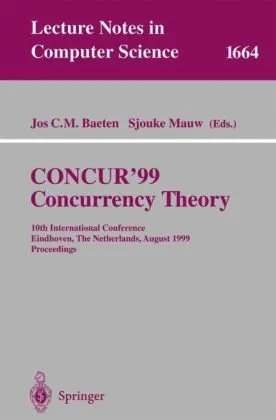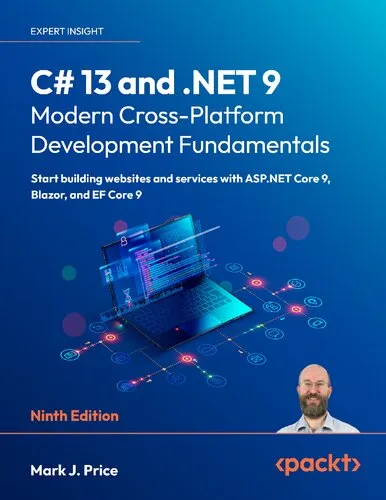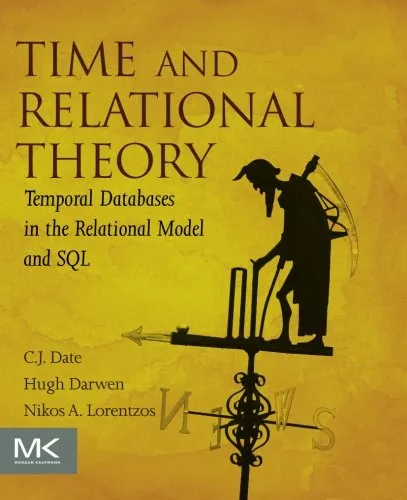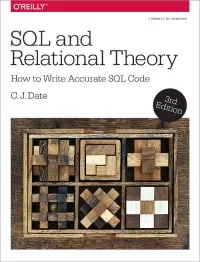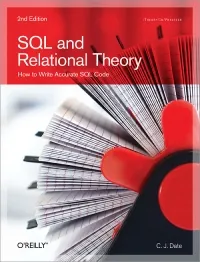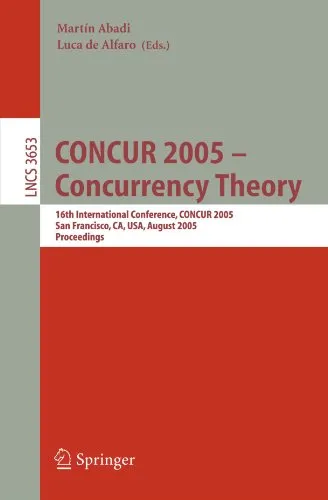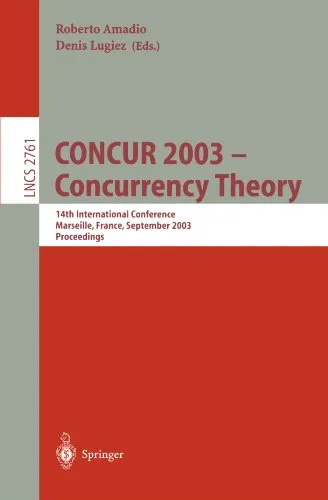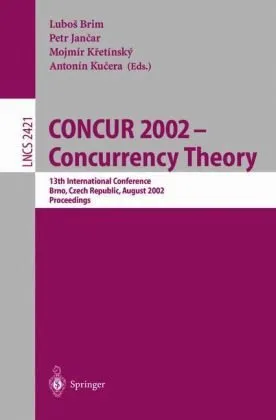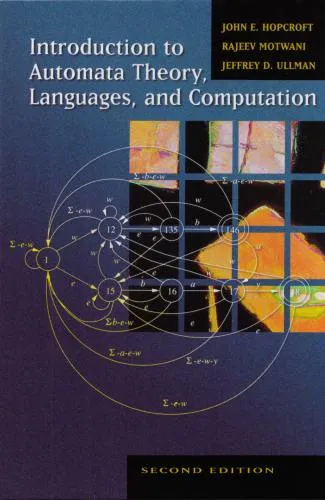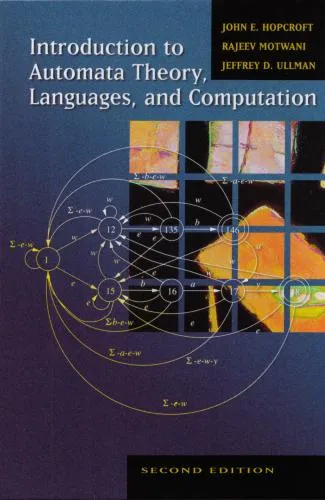SQL and Relational Theory: How to Write Accurate SQL Code, 2nd Edition
4.5
Reviews from our users

You Can Ask your questions from this book's AI after Login
Each download or ask from book AI costs 2 points. To earn more free points, please visit the Points Guide Page and complete some valuable actions.Related Refrences:
Introduction to SQL and Relational Theory: How to Write Accurate SQL Code, 2nd Edition
Welcome to the exploration of relational theory's profound influence on SQL, which is the language at the core of virtually all relational databases. The second edition of this book delves deeper into how relational theory is not only the foundation of SQL but integral to writing precise, error-free code. Through this comprehensive guide, the goal is to bridge the often complex world of database management with the practical realities that SQL developers face daily.
Detailed Summary of the Book
The book starts by establishing a foundational understanding of how SQL interacts with relational theory. It emphasizes proper database design and proper use of SQL to adhere to relational principles, thus ensuring data integrity and optimizing performance. The initial chapters cover fundamental concepts such as relations, tuples, and attributes, providing a theoretical backdrop against which SQL syntax and structure can be understood.
Further chapters explore deeper aspects of relational theory, including normalization, data dependencies, and the intricacies of constraints. These topics highlight how a robust theoretical foundation can help avert common pitfalls encountered in real-world SQL usage. Special attention is given to the practice of writing SQL that is both syntactically correct and aligned with theoretical principles.
One of the core objectives of this work is to demystify relational operations such as joins, selections, and projections, with a focus on real-world application. The text discusses relational algebra and how understanding its precepts can lead to more efficient query writing. Moreover, it addresses common errors and misconceptions that SQL practitioners may encounter, thereby providing strategies to avoid them.
The book wraps up with advanced topics such as transaction management, views, and integrity constraints, encouraging the reader to think critically about the implications of these concepts in professional practice.
Key Takeaways
- Understanding the underlying principles of relational theory is essential for writing accurate and effective SQL code.
- Clear distinctions between SQL and the relational model highlight potential discrepancies and misunderstandings.
- Normalization and proper design are keys to maintaining data integrity and optimal database performance.
- Advanced topics, including transactions and constraints, must be understood for efficient management of databases.
- Practitioners are encouraged to adopt a critical view of existing structures and to question and align their code with relational theory.
Famous Quotes from the Book
"The essence of relational theory lies in its ability to establish order and truth within the chaos of data."
"To comprehend SQL fully, one must first understand the relational framework it seeks to model."
"Relational theory is not an abstract concept—it is a practical guide for creating robust, error-free databases."
Why This Book Matters
For those engaged in database management and software development, understanding the interplay between SQL and relational theory is paramount. This book offers more than just technical guidance; it provides a philosophical approach to database design and management, elevating the reader's understanding of how to create databases that are both functional and theoretically sound.
By emphasizing the importance of relational principles in SQL code, the book ensures that readers not only adopt best practices but also innovate within their fields. This knowledge is invaluable for developers who wish to optimize performance, bolster security, and maintain data integrity. In an era where data is among the most critical assets of any organization, mastering the content of this book could be transformative.
The second edition's enhancements and clarifications further solidify its place as an essential resource for both new and experienced SQL developers. It encourages a discipline of accuracy and precision, which is vital in today's data-driven decision-making processes. Profoundly insightful, this book is indeed a cornerstone for anyone aiming to master SQL in the context of relational theory.
Free Direct Download
You Can Download this book after Login
Accessing books through legal platforms and public libraries not only supports the rights of authors and publishers but also contributes to the sustainability of reading culture. Before downloading, please take a moment to consider these options.
Find this book on other platforms:
WorldCat helps you find books in libraries worldwide.
See ratings, reviews, and discussions on Goodreads.
Find and buy rare or used books on AbeBooks.
1537
بازدید4.5
امتیاز0
نظر98%
رضایتReviews:
4.5
Based on 0 users review
Questions & Answers
Ask questions about this book or help others by answering
No questions yet. Be the first to ask!
